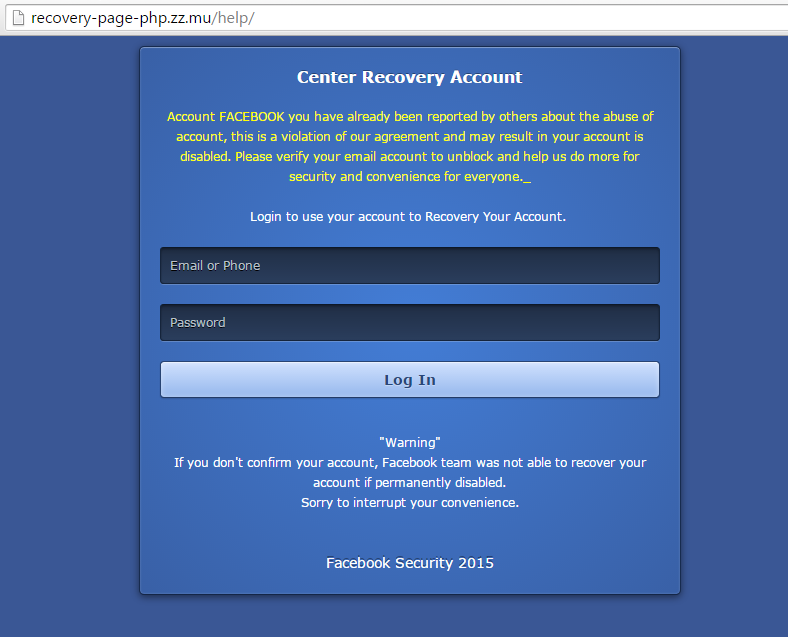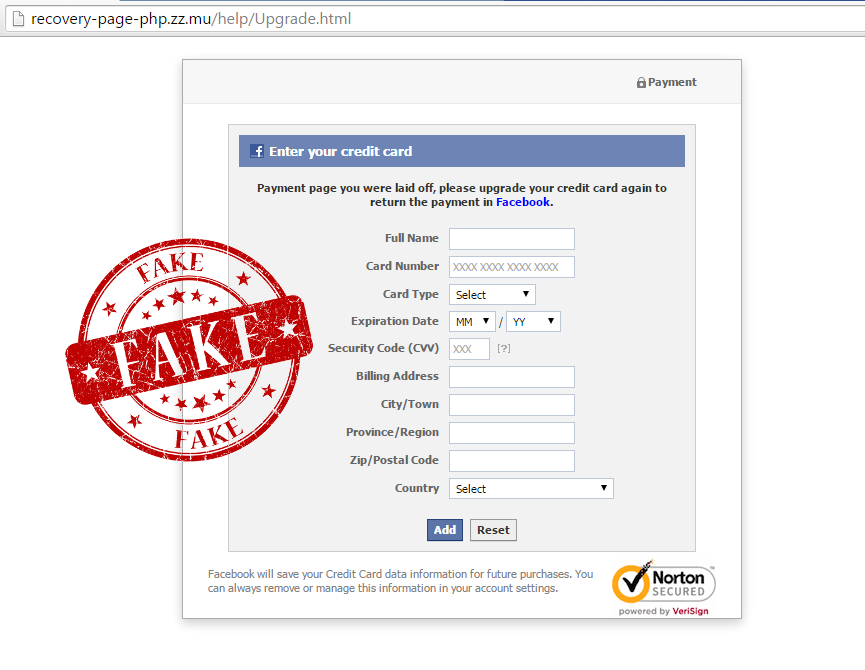Scam alert: New Facebook scam wants to steal your login and your money

Another day, another scam — but this one might have the potential to rope in unsuspecting people at an above average rate. A new wave of messages is sweeping Facebook, and it may be an easy one for some people to fall for considering how enthusiastic they are about Facebook. The scam involves replies made to users’ posts informing them that their accounts may have to be suspended due to reports of abuse. The only way to prevent the suspension, according to the scam messages, is to enter your login credentials and update your payment information in Facebook’s system.
Of course, these messages have nothing to do with Facebook and victims risk having their logins stolen along with their credit card information.
DON’T MISS: Pirate’s paradise: cCloud TV streams HBO, ESPN and 50 other live channels for free
If you see a message posted in response to one of your messages on Facebook from an account called “Facebook recovery,” report it immediately. No, your account is not in danger of being suspended. Instead, you’ve been targeted by a new scam sweeping Facebook.
As noted on the Malwarebytes blog, the scam messages look like this:

Here is the full text of the message:
Notification: Your Account will be Disabled!
Account FACEBOOK you have already been reported by others about the abuse of account, this is a violation of our
agreement and may result in your account is disabled. Please verify your email account to unblock and help us do more
for security and convenience for everyone.Immediately do recover your Facebook account, by clicking on the link below:
hxxp://j[DOT]mp/1HloHXd?help-facebook-recovery“Attention”
If you ignore this message, we can not recover your account and your account will be permanently disabled.
Sorry to interrupt your convenience.The Facebook Team
Clicking the above link leads to a screen where users are asked to log in with their Facebook usernames and passwords. Should they decide to log in, their credentials are of course recorded by the perpetrators of the scam.

The next screen asks for credit card information, and it also features what is likely the worst broken English yet. “Payment page you were laid off, please upgrade your credit card again to return the payment in Facebook,” the page reads.
Hopefully, victims who have gotten this far realize something is fishy at this point.

The broken English will be a dead giveaway for some people, but many more still fall victim to scams like this, perhaps due to the sheer urgency they feel when they believe they might lose access to Facebook.
Related stories
Why Mark Zuckerberg wants kids to play video games
Oculus Rift: Start saving money for a high-end computer, and it won't be a Mac
Video flashback: 19-year-old Mark Zuckerberg talks about 'The Facebook' on CNBC
More from BGR: Linux creator says Windows, OS X, iOS and Android are all malware
This article was originally published on BGR.com

